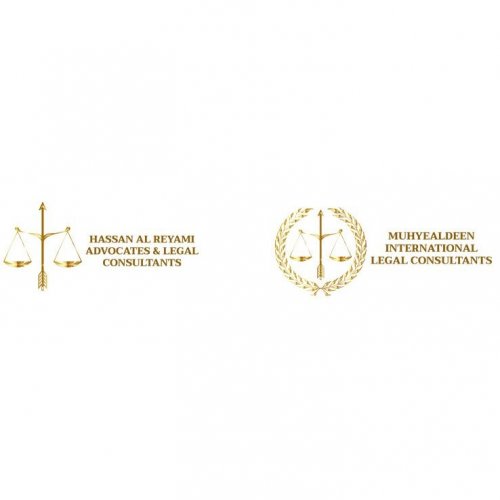Best New Business Formation Lawyers in Abu Dhabi
Share your needs with us, get contacted by law firms.
Free. Takes 2 min.
List of the best lawyers in Abu Dhabi, United Arab Emirates
About New Business Formation Law in Abu Dhabi, United Arab Emirates
In Abu Dhabi, UAE, the laws regarding new business formation are designed to encourage both local and foreign investments. With varying types of business structures available such as Limited Liability Company (LLC), Free Zone Entity, and Offshore Company, it's essential to understand each type's legal implications. New businesses also need to register with several government departments including the Department of Economic Development (DED) and obtain appropriate licenses.
Why You May Need a Lawyer
Setting up a new business in Abu Dhabi involves navigating a complex web of unfamiliar laws and regulations. Understanding registration requirements, tax laws, financial regulations, labor laws and various trade licenses can be overwhelming, particularly for foreign investors. A lawyer can guide you through the legal aspects, help with the preparation and submission of documents, and provide ongoing advice to ensure your business operates within the legal framework.
Local Laws Overview
The UAE Companies Law is the main regulation for business formations in Abu Dhabi. With regards to LLCs, foreign investors can own up to 49% of the company, with 51% being owned by a UAE national. Free Zone Entities, however, allow 100% foreign ownership and offer various tax advantages. Specific legal requirements pertain to different industries and define how a business should operate. Moreover, the UAE employs strict labor laws that regulate employment contracts, working hours, and workplace safety.
Frequently Asked Questions
1. Can a foreigner own 100% of a business in Abu Dhabi?
Yes, but only if the business is incorporated in one of Abu Dhabi's free zones. Elsewhere in Abu Dhabi, a UAE national must own at least 51% of the business.
2. What are the major legal steps to start a business in Abu Dhabi?
Key steps include defining your business activity, choosing a business structure, registering the business with the DED, obtaining necessary licenses, opening a bank account, and arranging for visas and labor cards for any employees.
3. What types of businesses require special approval in Abu Dhabi?
Some business activities require additional approvals from certain ministries. For example, setting up a healthcare or education provider requires approval from the Department of Health or Abu Dhabi Department of Education and Knowledge respectively.
4. How long does it take to form a company in Abu Dhabi?
Typically, with all the required documentation in place, it can take about two to three weeks. This duration may vary based on the business type and whether additional approvals are required.
5. Is there a minimum capital requirement for establishing a company?
Yes, the minimum capital requirement depends on the type of company being established. For instance, for a LLC it is AED 150,000.
Additional Resources
The Department of Economic Development (DED) in Abu Dhabi and various Free Zone Authorities are excellent starting points for information on starting a business. You can also refer to the UAE Ministry of Economy website for detailed information.
Next Steps
If you're considering starting a new business in Abu Dhabi, seek advice from an experienced business lawyer who's familiar with local laws. They can guide you throughout the formation process and help avoid any potential legal issues. Your next steps should be to gather any necessary documents and start the consultation process.
Lawzana helps you find the best lawyers and law firms in Abu Dhabi through a curated and pre-screened list of qualified legal professionals. Our platform offers rankings and detailed profiles of attorneys and law firms, allowing you to compare based on practice areas, including New Business Formation, experience, and client feedback.
Each profile includes a description of the firm's areas of practice, client reviews, team members and partners, year of establishment, spoken languages, office locations, contact information, social media presence, and any published articles or resources. Most firms on our platform speak English and are experienced in both local and international legal matters.
Get a quote from top-rated law firms in Abu Dhabi, United Arab Emirates — quickly, securely, and without unnecessary hassle.
Disclaimer:
The information provided on this page is for general informational purposes only and does not constitute legal advice. While we strive to ensure the accuracy and relevance of the content, legal information may change over time, and interpretations of the law can vary. You should always consult with a qualified legal professional for advice specific to your situation.
We disclaim all liability for actions taken or not taken based on the content of this page. If you believe any information is incorrect or outdated, please contact us, and we will review and update it where appropriate.

















